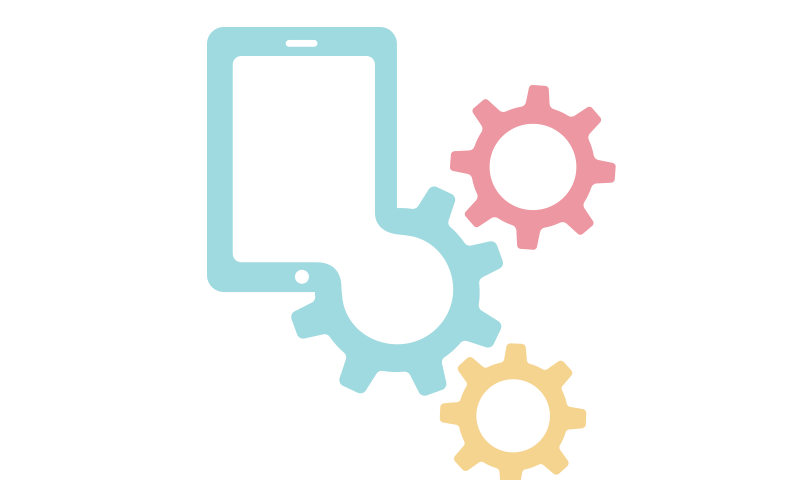Introduction: Unraveling the Potential of iOS SDK

Unleashing Creativity: Exploring the Power of Android Studio in App Development
May 25, 2024
Introduction: Unveiling the Power of Android SDK
May 25, 2024Introduction: Unraveling the Potential of iOS SDK
At the heart of iOS app development lies the iOS Software Development Kit (SDK), a comprehensive set of tools, frameworks, and APIs provided by Apple to empower developers in creating innovative and feature-rich apps for iPhone, iPad, Apple Watch, and Apple TV. In this blog, we embark on a journey through the capabilities, features, and best practices of the iOS SDK, uncovering the tools and resources that drive the creation of cutting-edge iOS applications.
Thank you for reading this post, don't forget to subscribe!Understanding the Core Components of iOS SDK
UIKit Framework
The UIKit framework forms the foundation of iOS app development, providing essential components for building user interfaces, handling user interactions, and managing app lifecycle. From buttons and labels to view controllers and navigation bars, UIKit offers a rich set of building blocks for creating intuitive and visually appealing interfaces.
Foundation Framework
The Foundation framework offers a collection of essential classes and utilities for handling data, networking, and file management in iOS apps. With classes like NSString, NSArray, and NSUserDefaults, Foundation simplifies common tasks and ensures consistency across iOS applications.
Leveraging the Power of Swift Programming Language
Swift Syntax and Features
iOS SDK embraces Swift, Apple’s modern and powerful programming language, as the preferred language for iOS app development. With its concise syntax, type safety, and advanced features like optionals and closures, Swift enables developers to write clean, expressive code that is both efficient and maintainable.
Seamless Integration
iOS SDK seamlessly integrates with Swift, providing developers with tools and resources to write, refactor, and debug Swift code within Xcode, Apple’s integrated development environment (IDE) for iOS app development. Whether developers are new to Swift or seasoned veterans, iOS SDK offers a seamless development experience that encourages productivity and innovation.
Harnessing the Power of Frameworks and APIs
Core Data Framework
The Core Data framework simplifies data management and persistence in iOS apps, allowing developers to model, store, and fetch data with ease. By leveraging Core Data, developers can create robust and scalable apps that seamlessly integrate with the underlying data model.
Core Animation and Core Graphics Frameworks
The Core Animation and Core Graphics frameworks enable developers to create stunning visual effects and graphics in iOS apps. From smooth animations and transitions to custom drawing and rendering, Core Animation and Core Graphics empower developers to enhance the user experience and bring their apps to life.
Testing, Debugging, and Deployment
XCTest Framework
iOS SDK includes XCTest, a powerful testing framework that enables developers to write and execute unit tests, performance tests, and UI tests for their iOS apps. By automating the testing process and identifying bugs early in the development cycle, XCTest helps ensure the reliability and stability of iOS apps before they are released to users.
App Store Distribution
iOS SDK provides developers with tools and resources to prepare their apps for distribution on the App Store, Apple’s digital distribution platform for iOS apps. With support for code signing, app provisioning, and App Store Connect integration, iOS SDK streamlines the app submission process and helps developers reach a global audience of iOS users.
Conclusion: Empowering Innovation with iOS SDK
In conclusion, iOS SDK stands as a beacon of innovation in the world of iOS app development, providing developers with the tools and resources they need to build exceptional apps that inspire, engage, and delight users worldwide. From UIKit and Foundation to Swift programming and core frameworks, iOS SDK offers a comprehensive development environment that empowers developers to bring their ideas to life and create meaningful experiences for iOS users.
As technology continues to evolve and user expectations soar, iOS SDK remains at the forefront of app development, driving innovation and enabling developers to push the boundaries of creativity and ingenuity. With iOS SDK as their ally, developers can embark on a journey of exploration, discovery, and innovation, unlocking endless possibilities in the world of iOS app development.
For more information: www.ecbinternational.com


